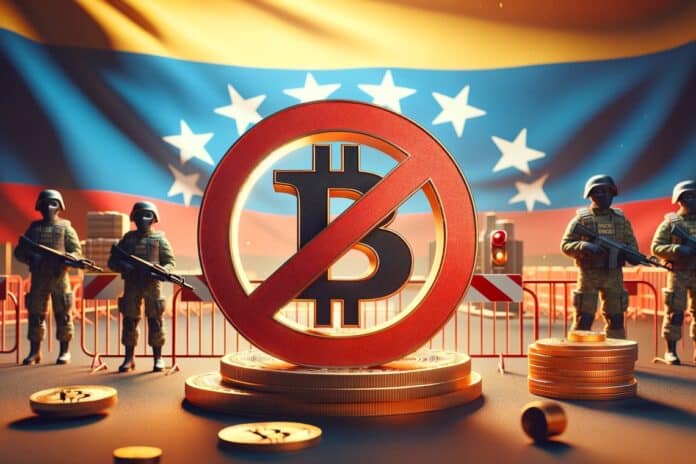The government of Venezuela has recently decided to ban crypto mining in an attempt to protect the national electrical grid. This move follows a series of crackdown actions that have also led to the confiscation of 2,000 mining devices in the city of Maracay.
Summary
Venezuela: The energy crisis pushes the ban on crypto mining
According to a local news agency, the Ministry of Electric Energy of Venezuela has announced specific plans to disconnect cryptocurrency mining farms from the national electrical grid.
This decision aims to regulate the excessive energy consumption by mining operations and ensure a stable supply of electricity for the population. An enforcement action therefore aimed at protecting and ensuring a more important common good.
The Ministry has indeed emphasized the need and duty to offer efficient and reliable electrical service to the Venezuelan population, eliminating the pressure caused by these high-energy consumption activities.
Crypto mining and energy consumption in Venezuela
In the last ten years, Venezuela has faced significant problems with its electrical grid, blackouts have become increasingly frequent, to the point of being a daily occurrence. Impacting and damaging citizens and economic activity.
The situation has drastically worsened since 2019, causing even more widespread inconvenience.
This is therefore the situation of strong discomfort and widespread discontent that has pushed the government to take drastic measures to stabilize the energy supply.
Mining of cryptocurrencies has always been known for its high energy demands.
Processes like Bitcoin mining require huge amounts of electrical energy to power the computers that solve complex mathematical algorithms needed to validate transactions.
It is not surprising that countries like China and Kazakhstan have already implemented strict regulations or completely banned mining due to concerns about energy consumption.
Context of corruption and arrests
The decision of Venezuela to ban cryptocurrency mining is also linked to a broader anti-corruption initiative.
Several high officials have indeed been arrested on charges of corruption, among them stands out the name of Joselit Ramírez, the former head of the National Superintendence of Cryptoassets.
It is worth noting that Rafael Lacava, governor of the state of Carabobo, has highlighted the importance of public collaboration in detecting illegal mining operations. He encouraged all citizens to report any illicit activities to law enforcement.
Conclusions
The decision of Venezuela to ban cryptocurrency mining represents a significant attempt to address the chronic problems of the electrical grid and to combat corruption.
However, as the country tries to stabilize its energy supply, it remains to be seen how this move will influence the future of cryptocurrency mining in the region and how local miners will respond.




